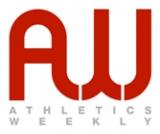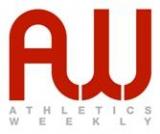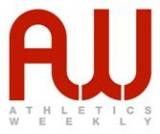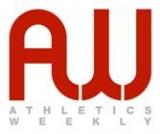Folders |
Modern-day BrunelPublished by
In the concluding part of our two-part feature on Brunel University, Dr Costas Karageorghis looks at the more recent yearsThe nifty NinetiesThe 1990s proved to be another golden epoch for Borough Road as three of its sons donned the national vest in the three Olympiads that spanned that decade and the millennial year. The 1992 Barcelona Games was a stellar one for the British team. Alongside Linford Christie and Sally Gunnell s golds, English triple jumper Julian Golley began a magnificent representative career that would culminate in a Commonwealth gold two years hence in Victoria, Canada. The evergreen Golley has extended his athletics career well into his 40s and still ranks among the nation s best 30 triple jumpers today. Anthony Whiteman won the 1500m at the World Student Games in Catania, Sicily, in 1997 and appearances in the 1500m at the 1996 and 2000 Olympics would see him remembered as one of the finest middle-distance runners that Brunel has produced. Indeed, he stands as the only man to have ever run a mile under four minutes outdoors beyond the age of 40. In 2015, Whiteman continues to be active as a competitor and has been among the finest veterans in the world over 800m, 1500m and the mile. He was joined in Sydney 2000 by Matt Douglas, who competed in both the 400m hurdles and 4x400m. The 1990 Commonwealth Games were notable for javelin thrower Nigel Bevan s participation for England, while the gentle giant Abi Ekoku did likewise in the discus and shot put; all Borough lacked that year was a hammer thrower. However, those games were most notable for Ian Tullett s ascent to a silver medal in the pole vault. The 1994 Commonwealth Games in Victoria, British Columbia, saw Borough Road representation for the charismatic decathlete Jamie Quarry, representing Scotland, as well as up-and-coming sprinter Iwan Thomas with the Welshman taking to the track in the 200m, 400m, and 4x400m. Thomas went on to become European, Commonwealth and World Cup champion over 400m in 1998 and remains the British record-holder over the distance with 44.36. Other Borough Road Commonwealth caps were claimed by Chris Davidson (1998, long jump), the aforementioned Whiteman (1998, 1500m) and Douglas (1998, 400m hurdles).
In the mid-1990s, the institution that morphed out of the West London Institute—Brunel University College—was invited to join the Universities Athletic Union (UAU) in its own right along with South Glamorgan Institute in Wales. The team had been dominant at the British Colleges Championships for many years, but the UAU Championships pitched the Isleworth-based athletes against much larger and better-established higher education institutions such as the universities of Loughborough and Birmingham. The head of school at the time, John Hunter, was particularly supportive of this endeavour and, despite being the chief architect of Borough Road s success in rugby union through the preceding two decades, did a great deal to support the institution s athletes and celebrate their successes. It was tough in the first couple of years competing on equal terms with Loughborough, as they had at least four times the number of athletes to draw on. Nonetheless, the Brunel team won their first BUSA title in Antrim, Northern Ireland, in 1997. It was the women s team who were triumphant on this occasion, spearheaded by leading multi-eventers Kelly Sotherton and Julie Hollman, and supported by the sprinting Williams sisters triplets with a tremendous talent who often captured the interest of the media. Both Sotherton and Hollman went on to become Olympians in the heptathlon with the former reaching a pinnacle in her career with a bronze medal in Athens in 2004. Hollman holds the world best performance for the women s decathlon to the present day (6522), which she set while still a student in September 2007. The strongest men s team of the 1990s was during the years 1998 and 1999 when Brunel University College as it was then known so as to differentiate it from parent institution Brunel University won the British Universities Sports Association (BUSA) Indoor Athletics Championships twice in successive years. This team consisted of Olympic luminaries such as Whiteman and Douglas alongside Commonwealth Games competitor Chris Davidson and European Championships contenders Geoff Dearman (400m), Graham Beasley (200m), Chris Davidson (long jump) and Neil Speight (800m). Head of school at the time was the Olympic 100m bronze medallist of 1960 and former executive chairman of the British Athletic Federation, Professor Peter Radford. One of the most enthusiastic contributors to the team in that era was a footballer, Ian Deeth, who was dropped by the Borough Road first team and was persuaded to try athletics during the summer of his first year. In March 2001 during his third year, Deeth broke the Scottish senior indoor 300m record at the annual RAF invitational meeting at the NIA Birmingham with 34.84. Football s loss was certainly athletics gain. Charles Lipton: a true Borough Road legendAs the sun set on the tenure of the Borough Road campus in 1999, past and present students mourned the passing of an unassuming and gentle man who had quietly become a talisman and staunch champion of athletics at the old West London Institute. Charles Lipton was a retired history lecturer from the North London Polytechnic who from 1968 until his final days was a daily visitor to the college, commuting the not inconsiderable distance from Swiss Cottage in NW3. An avuncular figure, he attended to the welfare of students and acted as a recruiting sergeant for both the athletics and rugby union clubs. He would hold court in the students refectory and drew all around him with a jovial humour and splendid repartee that harked back to a bygone age. Mr Lipton became a perennial and respected figure at athletics stadia the length and breadth of the country in his signature peaked cap and knee-length tweed coat. Mr Lipton became synonymous with a battery of charming phrases that he would coin with the timing of a seasoned comic. Only your granny could love you, you blighter!” he would croon to the disheartened rugby player who had missed the team bus or the discus thrower who had his essay returned with a grade of D minus, and it would not be long until woes were forgotten and all were wreathed in smiles. Perhaps the bon mot that best expresses the wit, wisdom and warmth of the man is: Love is like a potato; it has eyes but it cannot see.” In his later years, worsening arthritis in his legs prevented him from attending the university athletics meetings so he would often leave the team manager with a note or a poem to read out to the athletes on the team bus, just before they entered the fray: In A.D. seventeen ninety-eight In honour, we must set our eyes Thus we heard for history s annals This time, my friends, My lasses and lads After all, don t brains and beauty always win in the end? Composed by Charles Lipton immediately prior to the British Universities Sports Association Indoor Athletics Championship of February 1998, the year Borough Road College was celebrating its bicentenary. Mr Lipton was one who always gave more than he took and took people as he found them, affording all the same respect. He was so deeply revered by the students that he is the only person to have been installed as an honorary life member of two Brunel sports clubs rugby union and athletics. The generations of young women and men who received a rounded pastoral and athletics education at Borough Road are his monument; and it is one that would not have displeased him. Into the new millenniumThe new millennium witnessed a shower of success by female Brunelians Katherine Murphy, Shani Anderson, Montell Douglas, Abi Oyepitan, Kadi-Ann Thomas, Perri Shakes-Drayton (pictured below), Laura Turner and Ellie Spain.
In the 2004 Athens Games, Oyepitan became GB s first female Olympic 200m semi-finalist since Kathy Smallwood-Cook. The imperturbable Shakes-Drayton represented GB with distinction in London 2012, strengthening an international profile established at senior level when claiming bronze in the 400m hurdles and 4x400m in the 2010 European Championships in Barcelona. That year was also marked by Oyepitan s silver in the 2010 Commonwealth Games 200m; a medal she improved on in the 4x100m when anchoring a victorious team that included fellow Brunelians Montell Douglas and Laura Turner. Like Oyepitan, Turner was also going one better than her silver in the same event four years previously in Melbourne. Recently, Turner has become a Brunel coach specialising in sprints and hurdles. She was joined on the coaching team by former pole vaulter Spain.
The 2002 Commonwealth Games had borne witness to a bronze medal for one of Borough Road s and Brunel s most celebrated and charismatic sons; Scottish decathlete Jamie Quarry who peaked in his thirties. Also in the decade, World Championships honours came courtesy of Marcia Richardson, who donned a GB vest in the 4x100m in Stuttgart 1993 while former club captain Sean Baldock also ran in a relay, this time over 400m, four years later in Athens. Baldock faced Michael Johnson (USA) in the opening round of the 400m at the Sydney Olympics of 2000. Ashley Bryant receives an honourable mention here too, as he was a former club captain who won a silver medal in the decathlon at the 2014 Commonwealth Games in Glasgow having recorded a PB of 8141 points in Gotzis a few weeks previously. Compiling this compendium has brought to life a wonderful and enduring dynasty of athletics achievement that has its roots in the Victorian age. When drawn together, the ranks of athletes in this anthology appear more dazzling than they did at any one time in the institution s history. It is true that success begets success as the achievements of our forbearers open up a doorway of possibility. Past students, after all, had only an egg-shaped cinder track on which to ply their trade; now we have state-of-the-art indoor and outdoor facilities. How much do the new breed of Brunelians owe to the pioneers from decades past? There is no reason to assume that the trajectory has reached its peak: While Kathy Smallwood-Cook s Olympic bronze medals in the early 1980s perhaps represent the zenith to date, each year beckons with the prospect of a new recruit who might mount the highest podium; a name for the whole nation s and perhaps the world s lips. Mr Lipton would surely be proud. This is the concluding part of our two-part feature on Brunel University – the first part on Brunel athletics history can be found here Dr Costas Karageorghis was Brunel assistant team manager 1993-95 and has been team manager since 1995 The post Modern-day Brunel appeared first on Athletics Weekly. Read the full article at: www.athleticsweekly.com
|










